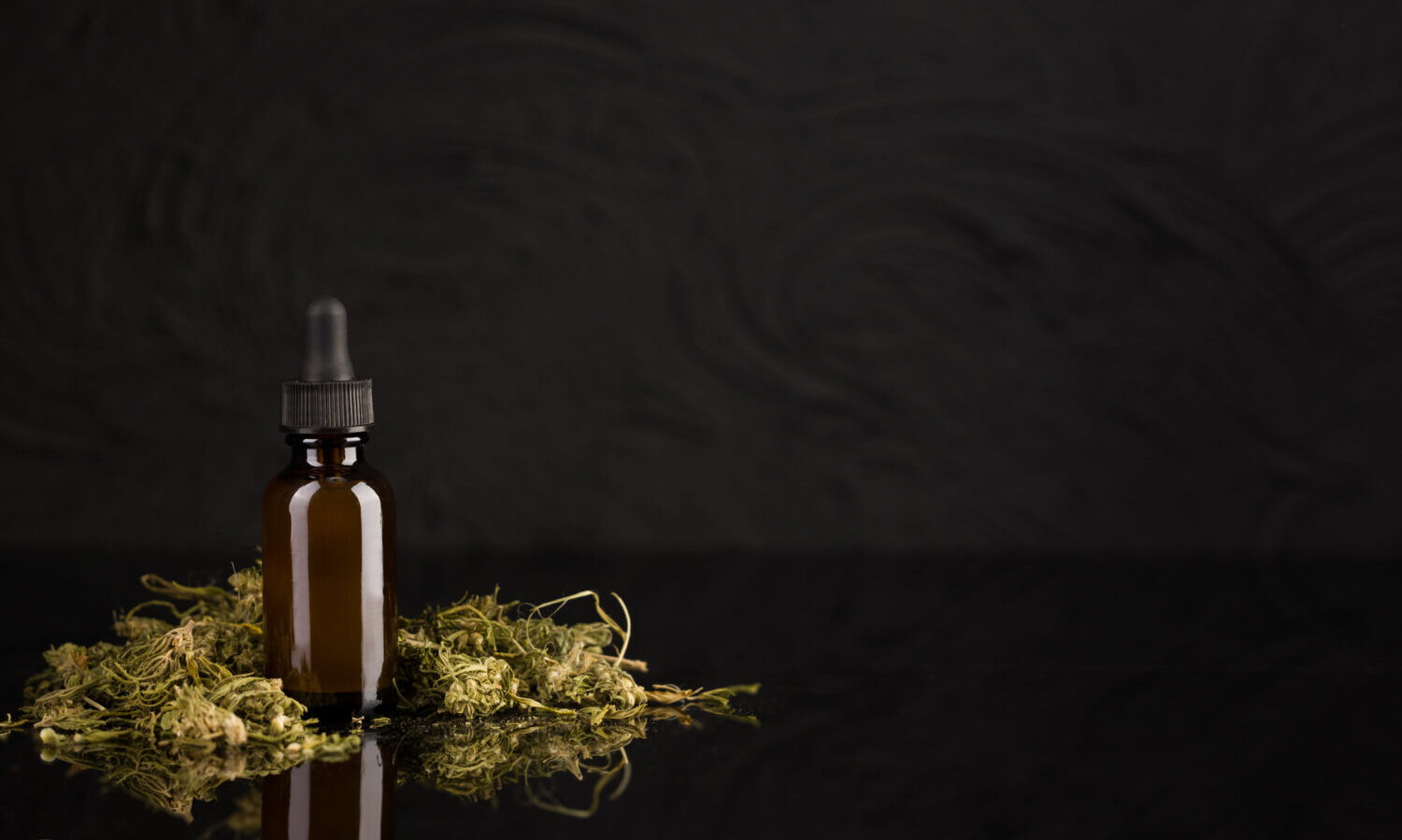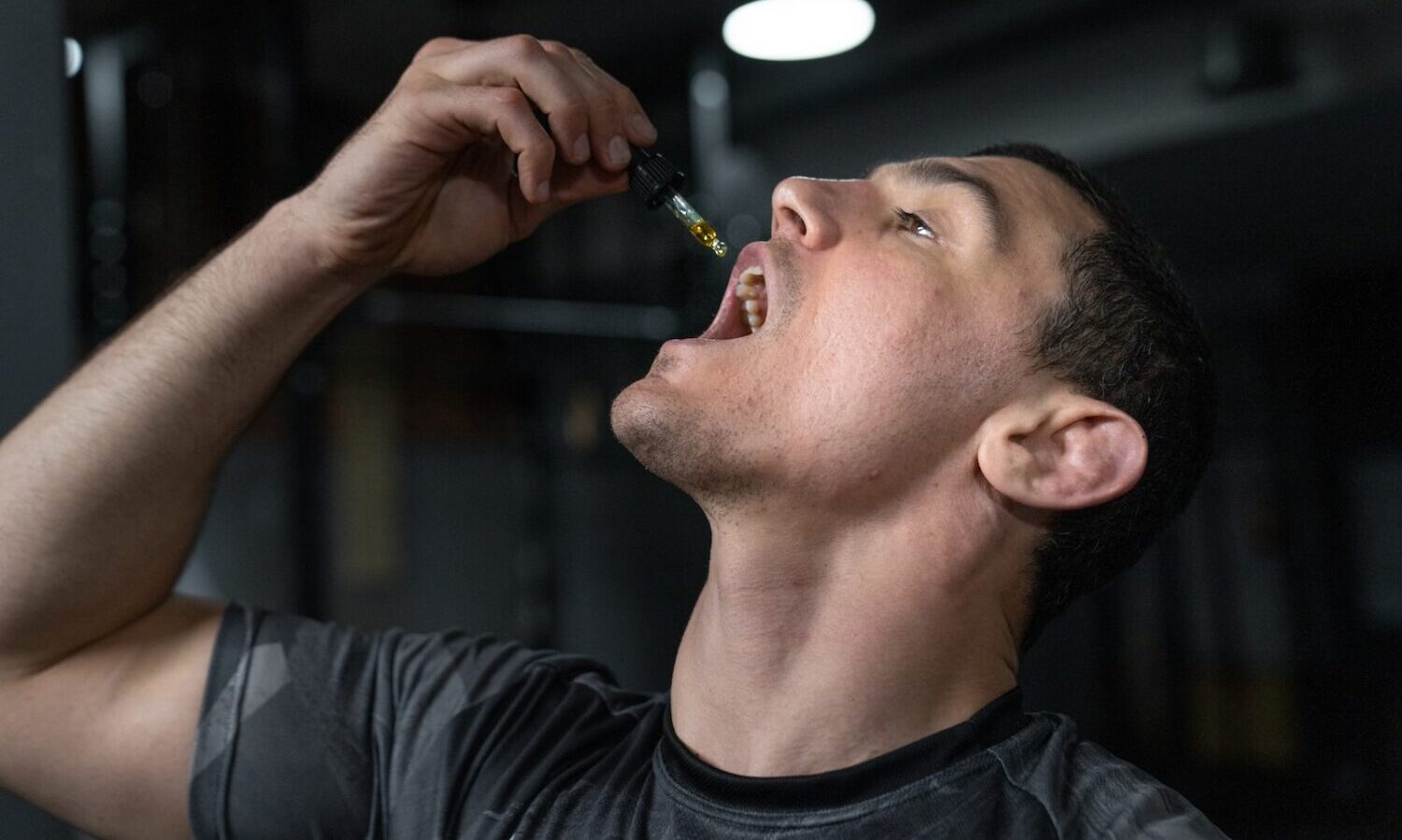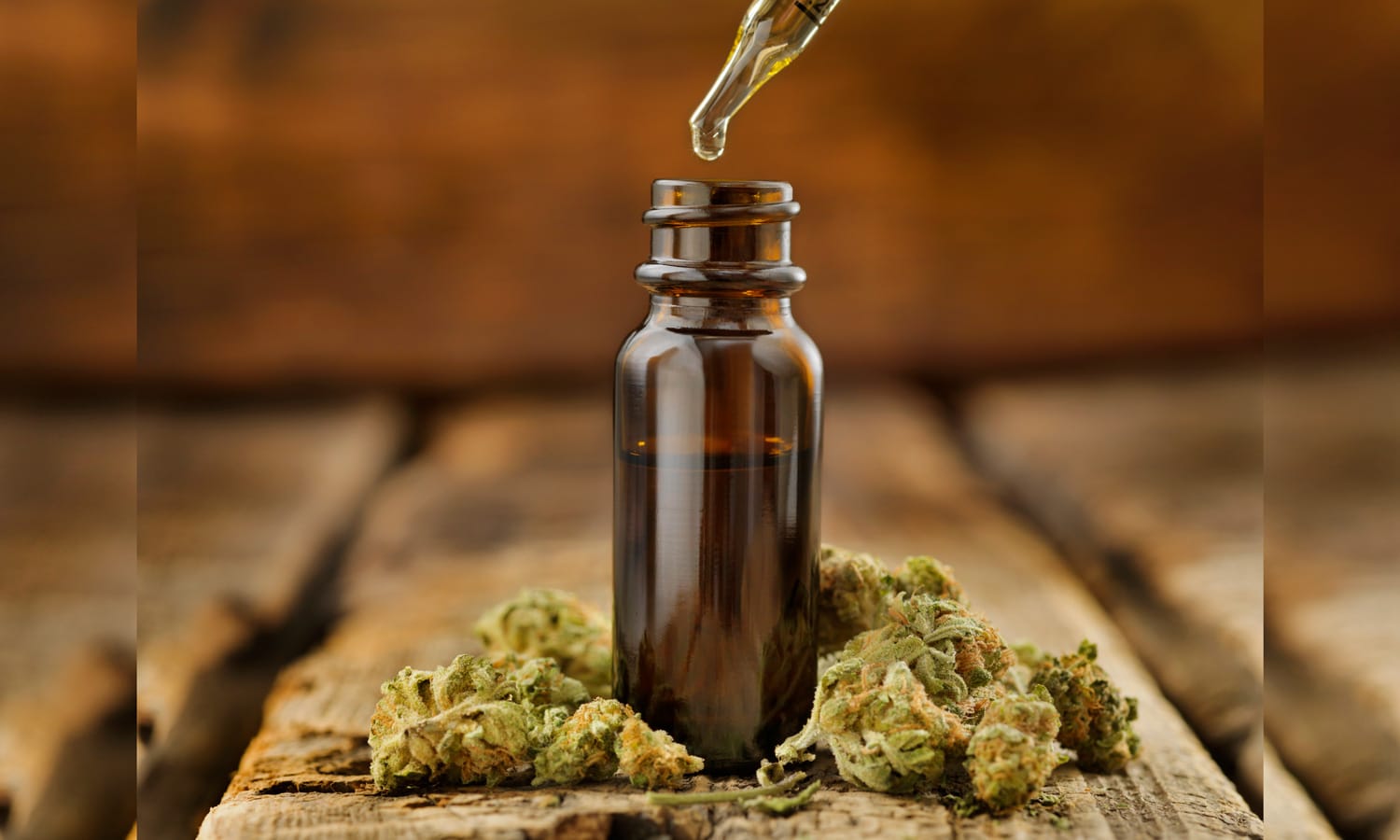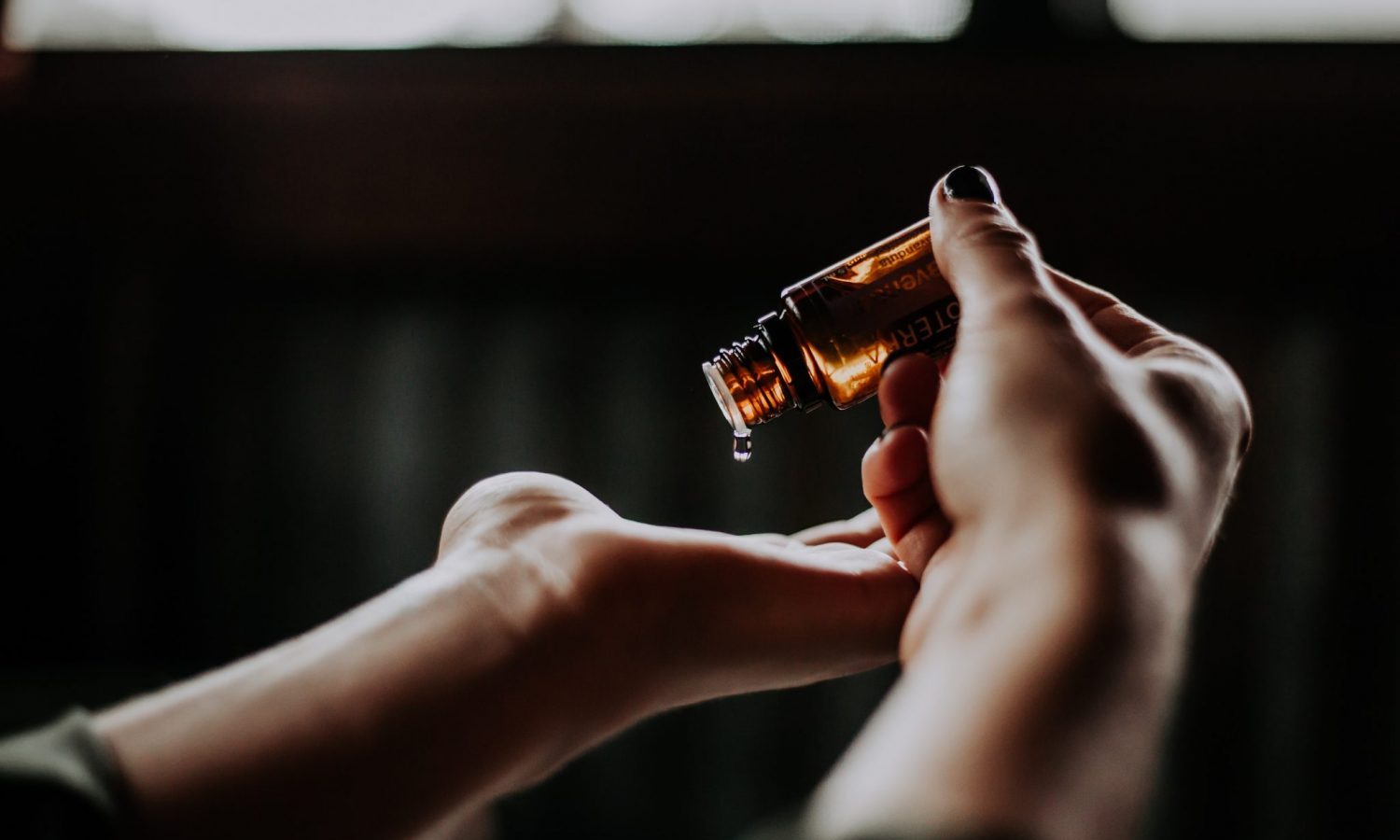Business
Is Dark CBD The Newest Trend In Cannabis Products?

There’s a new cannabis extraction method called dark CBD. This method was created to add more diversity to the already diverse cannabis market.
Since the 2018 Farm Bill Act, hemp has thrived, increasing demand for cannabidiol and other hemp-derived cannabinoids. Products, including tinctures, edibles, vape supplies, and tablets, are easily accessible. But not every product is made equally. Additionally, the isolation or extraction processes for some CBD products cause part of their potency to be lost.
The dark CBD extraction adds vitamins, flavonoids, and other phytonutrients that are naturally present in hemp but are lost during the refining process. It is an unprocessed variation of the usual extractions.
This guide unravels dark CBD and distinguishes it from other spectrums of cannabis, including the full or broad spectrum.
Overview of CBD
The cannabis sativa plant contains an organic compound called cannabidiol (CBD). The Centers for Disease Control and Prevention (CDC) classifies the cannabis genus of plants as having a variety of chemical components that can have various physiological effects.
Cannabis hemp and marijuana are two different species of the plant. The cannabinoids THC (tetrahydrocannabinol) and CBD are present in these plants (cannabidiol). Compared to marijuana, which has a greater THC content, hemp has greater concentrations of CBD and lower levels of THC. Unlike THC, which, when consumed, produces a “high,” CBD is not psychoactive, according to the CDC.
According to conservative projections, the US CBD market will be worth $16 billion by 2025. In a survey of 5,000 people conducted by the cannabis market research firm Brightfield Group, over 60% of CBD users reported using the substance to manage anxiety.
What Is Dark CBD?
Dark CBD is not a new cannabinoid or a more harmful variant of the substance. Most hemp-related goods, including full-spectrum regimens, go through some processing. Because CBD products solely contain cannabinoids, the more refined they are, the more nutrients they lose. Due to the higher vitamin and plant chemical content of the product, certain brands have embraced raw tinctures.

Unprocessed vs. Processed CBD Oil
Whether dark or unprocessed, CBD oil contains minerals and antioxidants and boosts the potency of all cannabinoids when mixed with other cannabinoids. Some of these botanical elements that give CBD its sometimes muddy and black appearance also have anti-inflammatory properties that may be helpful if you wish to utilize it for wellness purposes.
In contrast, processed or refined CBD oil is available in various colors, from a darker brown to light gold, just like other cannabinoid distillates. Depending on how pure or unadulterated an oil is, the color of the gold varies in intensity. However, during the extraction process, the numerous plant nutrients and botanicals that work in tandem with cannabis are eliminated.
Dark CBD vs. Full Spectrum
Dark CBD is full spectrum, but not all full spectrum CBD is dark CBD. The cannabinoids found in the hemp plant, including trace quantities of THC, are all present in full-spectrum products.
Dark CBD products are, therefore, full spectrum since they contain not just the cannabinoids of the hemp plant but also all of its other constituents. Dark CBD has all of the hemp plant’s cannabinoids and other substances.
Flavonoids, vitamins, and amino acids are also included, all of which help to maintain and strengthen our body. Dark CBD is a more “complete” full spectrum product that adds more ingredients and flavors to the hemp tincture.

Benefits of Dark CBD vs. Benefits of CBD
The refining procedure is the primary distinction between dark and standard CBD. Dark CBD offers the untapped potential of numerous antioxidants and botanicals combining synergistically with cannabinoids. As a result, it appears “darker” than typical gold oil or extracts.
Dark CBD tinctures can be an excellent method to add antioxidants to your everyday diet while risk-free experimenting with less processed goods. The best aspect is that you have a third-party lab report to help you examine all the phytonutrients and cannabinoids you obtain by turning to the dark side. It is more or less a less processed, more natural variation of a full-spectrum CBD product containing cannabinoids.
On the other hand, cannabidiol has a wide range of potential benefits, some of which may be beneficial for persistent chronic diseases. A few benefits of this cannabinoid include the following:
- Stress and overall anxiety symptoms may be reduced by it.
- CBD may reduce both chronic pain and inflammation.
- Cannabidiol can help with some cancer-related symptoms, mainly nausea and increased appetite.
- It reduces seizure activity using its neuroprotective abilities.

How to Dose Dark CBD Oil
We advise using dark CBD with the same caution as other CBD-based products because it functions identically to a hemp-based tincture. The quantity of CBD you need may vary depending on your weight, the disease you’re trying to treat, your hormonal balance, and how potent the oil is.
To begin with, all of these variables could seem confusing. As a result, our general recommendation for CBD use is to start with smaller dosages and gradually raise them, depending on whether you experience the desired impact.
A healthy person would typically take between 20 mg and 40 mg of CBD per day. Once you believe it is managing your symptoms, gradually raise this amount by 5mg weekly. We advise using a 10–20 mg dose for low doses or light stress; for persistent or extreme pain, you might wish to start with a 40 mg dose immediately.
Ensure that you keep note of dosage adjustments. To determine how much medication you would need and whether the concentration you had was the right one, keeping a record in a spare notebook or using your phone’s note apps can be beneficial. For the most outstanding results, we urge you to speak with your doctor before beginning any supplements.
Bottom Line
There are various CBD products in the market. The choice is yours to decide if you want dark CBD or full spectrum CBD. Or you could choose to go for regular THC-based products. Regardless of what you select, ensure you use the proper dosage responsibly. Also, confirm that what you’re ingesting is fit for consumption.
Source: https://thefreshtoast.com/cbd/is-dark-cbd-the-newest-trend-in-cannabis-products/
Business
New Mexico cannabis operator fined, loses license for alleged BioTrack fraud

New Mexico regulators fined a cannabis operator nearly $300,000 and revoked its license after the company allegedly created fake reports in the state’s traceability software.
The New Mexico Cannabis Control Division (CCD) accused marijuana manufacturer and retailer Golden Roots of 11 violations, according to Albuquerque Business First.
Golden Roots operates the The Cannabis Revolution Dispensary.
The majority of the violations are related to the Albuquerque company’s improper use of BioTrack, which has been New Mexico’s track-and-trace vendor since 2015.
The CCD alleges Golden Roots reported marijuana production only two months after it had received its vertically integrated license, according to Albuquerque Business First.
Because cannabis takes longer than two months to be cultivated, the CCD was suspicious of the report.
After inspecting the company’s premises, the CCD alleged Golden Roots reported cultivation, transportation and sales in BioTrack but wasn’t able to provide officers who inspected the site evidence that the operator was cultivating cannabis.
In April, the CCD revoked Golden Roots’ license and issued a $10,000 fine, according to the news outlet.
The company requested a hearing, which the regulator scheduled for Sept. 1.
At the hearing, the CCD testified that the company’s dried-cannabis weights in BioTrack were suspicious because they didn’t seem to accurately reflect how much weight marijuana loses as it dries.
Company employees also poorly accounted for why they were making adjustments in the system of up to 24 pounds of cannabis, making comments such as “bad” or “mistake” in the software, Albuquerque Business First reported.
Golden Roots was fined $298,972.05 – the amount regulators allege the company made selling products that weren’t properly accounted for in BioTrack.
The CCD has been cracking down on cannabis operators accused of selling products procured from out-of-state or not grown legally:
- Regulators alleged in August that Albuquerque dispensary Sawmill Sweet Leaf sold out-of-state products and didn’t have a license for extraction.
- Paradise Exotics Distro lost its license in July after regulators alleged the company sold products made in California.
Golden Roots was the first alleged rulebreaker in New Mexico to be asked to pay a large fine.
Source: https://mjbizdaily.com/new-mexico-cannabis-operator-fined-loses-license-for-alleged-biotrack-fraud/
Business
Marijuana companies suing US attorney general in federal prohibition challenge

Four marijuana companies, including a multistate operator, have filed a lawsuit against U.S. Attorney General Merrick Garland in which they allege the federal MJ prohibition under the Controlled Substances Act is no longer constitutional.
According to the complaint, filed Thursday in U.S. District Court in Massachusetts, retailer Canna Provisions, Treevit delivery service CEO Gyasi Sellers, cultivator Wiseacre Farm and MSO Verano Holdings Corp. are all harmed by “the federal government’s unconstitutional ban on cultivating, manufacturing, distributing, or possessing intrastate marijuana.”
Verano is headquartered in Chicago but has operations in Massachusetts; the other three operators are based in Massachusetts.
The lawsuit seeks a ruling that the “Controlled Substances Act is unconstitutional as applied to the intrastate cultivation, manufacture, possession, and distribution of marijuana pursuant to state law.”
The companies want the case to go before the U.S. Supreme Court.
They hired prominent law firm Boies Schiller Flexner to represent them.
The New York-based firm’s principal is David Boies, whose former clients include Microsoft, former presidential candidate Al Gore and Elizabeth Holmes’ disgraced startup Theranos.
Similar challenges to the federal Controlled Substances Act (CSA) have failed.
One such challenge led to a landmark Supreme Court decision in 2005.
In Gonzalez vs. Raich, the highest court in the United States ruled in a 6-3 decision that the commerce clause of the U.S. Constitution gave Congress the power to outlaw marijuana federally, even though state laws allow the cultivation and sale of cannabis.
In the 18 years since that ruling, 23 states and the District of Columbia have legalized adult-use marijuana and the federal government has allowed a multibillion-dollar cannabis industry to thrive.
Since both Congress and the U.S. Department of Justice, currently headed by Garland, have declined to intervene in state-licensed marijuana markets, the key facts that led to the Supreme Court’s 2005 ruling “no longer apply,” Boies said in a statement Thursday.
“The Supreme Court has since made clear that the federal government lacks the authority to regulate purely intrastate commerce,” Boies said.
“Moreover, the facts on which those precedents are based are no longer true.”
Verano President Darren Weiss said in a statement the company is “prepared to bring this case all the way to the Supreme Court in order to align federal law with how Congress has acted for years.”
While the Biden administration’s push to reschedule marijuana would help solve marijuana operators’ federal tax woes, neither rescheduling nor modest Congressional reforms such as the SAFER Banking Act “solve the fundamental issue,” Weiss added.
“The application of the CSA to lawful state-run cannabis business is an unconstitutional overreach on state sovereignty that has led to decades of harm, failed businesses, lost jobs, and unsafe working conditions.”
Business
Alabama to make another attempt Dec. 1 to award medical cannabis licenses

Alabama regulators are targeting Dec. 1 to award the first batch of medical cannabis business licenses after the agency’s first two attempts were scrapped because of scoring errors and litigation.
The first licenses will be awarded to individual cultivators, delivery providers, processors, dispensaries and state testing labs, according to the Alabama Medical Cannabis Commission (AMCC).
Then, on Dec. 12, the AMCC will award licenses for vertically integrated operations, a designation set primarily for multistate operators.
Licenses are expected to be handed out 28 days after they have been awarded, so MMJ production could begin in early January, according to the Alabama Daily News.
That means MMJ products could be available for patients around early March, an AMCC spokesperson told the media outlet.
Regulators initially awarded 21 business licenses in June, only to void them after applicants alleged inconsistencies with how the applications were scored.
Then, in August, the state awarded 24 different licenses – 19 went to June recipients – only to reverse themselves again and scratch those licenses after spurned applicants filed lawsuits.
A state judge dismissed a lawsuit filed by Chicago-based MSO Verano Holdings Corp., but another lawsuit is pending.
Source: https://mjbizdaily.com/alabama-plans-to-award-medical-cannabis-licenses-dec-1/
-

 Business2 years ago
Business2 years agoPot Odor Does Not Justify Probable Cause for Vehicle Searches, Minnesota Court Affirms
-

 Business2 years ago
Business2 years agoNew Mexico cannabis operator fined, loses license for alleged BioTrack fraud
-

 Business2 years ago
Business2 years agoAlabama to make another attempt Dec. 1 to award medical cannabis licenses
-

 Business2 years ago
Business2 years agoWashington State Pays Out $9.4 Million in Refunds Relating to Drug Convictions
-

 Business2 years ago
Business2 years agoMarijuana companies suing US attorney general in federal prohibition challenge
-

 Business2 years ago
Business2 years agoLegal Marijuana Handed A Nothing Burger From NY State
-

 Business2 years ago
Business2 years agoCan Cannabis Help Seasonal Depression
-

 Blogs2 years ago
Blogs2 years agoCannabis Art Is Flourishing On Etsy

